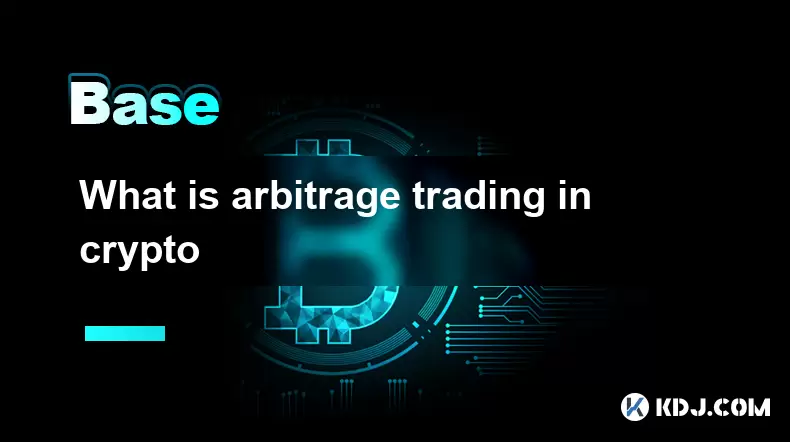-
 Bitcoin
Bitcoin $118,698.3676
0.16% -
 Ethereum
Ethereum $3,428.4877
5.97% -
 XRP
XRP $3.2496
9.52% -
 Tether USDt
Tether USDt $1.0002
0.00% -
 BNB
BNB $725.6930
4.36% -
 Solana
Solana $174.8923
4.52% -
 USDC
USDC $0.9997
-0.02% -
 Dogecoin
Dogecoin $0.2139
6.02% -
 TRON
TRON $0.3155
4.62% -
 Cardano
Cardano $0.8045
7.12% -
 Hyperliquid
Hyperliquid $46.6582
-1.72% -
 Stellar
Stellar $0.4676
0.80% -
 Sui
Sui $4.0143
0.38% -
 Chainlink
Chainlink $17.1546
2.97% -
 Hedera
Hedera $0.2458
3.27% -
 Bitcoin Cash
Bitcoin Cash $496.5967
-0.06% -
 Avalanche
Avalanche $22.8813
3.13% -
 Shiba Inu
Shiba Inu $0.0...01439
3.42% -
 UNUS SED LEO
UNUS SED LEO $8.8389
0.42% -
 Toncoin
Toncoin $3.2113
2.82% -
 Litecoin
Litecoin $101.2646
4.24% -
 Polkadot
Polkadot $4.2262
2.32% -
 Monero
Monero $340.4295
2.92% -
 Pepe
Pepe $0.0...01365
2.92% -
 Uniswap
Uniswap $8.9702
-2.78% -
 Bitget Token
Bitget Token $4.7675
2.00% -
 Dai
Dai $0.9998
-0.02% -
 Ethena USDe
Ethena USDe $1.0003
-0.04% -
 Aave
Aave $324.6394
-2.11% -
 Bittensor
Bittensor $433.6051
-0.88%
What is arbitrage trading in crypto
Scientists discover new species of deep-sea coral off the coast of California, highlighting the importance of marine biodiversity conservation.
Jul 14, 2025 at 02:07 pm

Understanding Arbitrage Trading in the Cryptocurrency Market
Arbitrage trading in crypto refers to the practice of taking advantage of price differences for the same cryptocurrency across different exchanges or markets. This strategy allows traders to buy a digital asset at a lower price on one platform and simultaneously sell it at a higher price on another, thereby making a profit from the discrepancy. Given the decentralized and fragmented nature of cryptocurrency exchanges, arbitrage opportunities are relatively common compared to traditional financial markets.
How Price Discrepancies Occur Across Exchanges
The volatility and liquidity imbalances in the crypto market lead to temporary price differences across platforms. These discrepancies arise due to various factors such as regional demand variations, exchange-specific fees, network congestion, and differences in order book depth. For example, Bitcoin might trade at $30,000 on Exchange A while being listed at $30,150 on Exchange B at the same moment.
These price mismatches typically don't last long because of the high-speed nature of crypto markets. However, arbitrageurs aim to capture these fleeting opportunities using automated bots or manual execution techniques.
- Regional Demand: Markets in different countries may experience varying levels of buying pressure.
- Liquidity Gaps: Less liquid exchanges often have wider bid-ask spreads, contributing to price divergence.
- Time Delays: Network latency or delayed data feeds can cause temporary mispricing.
Different Types of Crypto Arbitrage Strategies
There are several forms of arbitrage strategies employed in the crypto space, each with its own set of complexities and execution requirements.
- Spatial Arbitrage: Involves buying an asset on one exchange and selling it on another where the price is higher.
- Triangular Arbitrage: Utilizes three different cryptocurrencies within a single exchange to exploit pricing inefficiencies.
- Statistical Arbitrage: Uses quantitative models and algorithms to identify and execute trades based on historical price patterns.
Each method requires careful planning and rapid execution to ensure profitability before the market corrects itself.
Tools and Platforms Used for Arbitrage Trading
Successful arbitrage trading in crypto relies heavily on specialized tools and real-time monitoring platforms. Traders often use arbitrage scanners, API integrations, and bot services that track multiple exchanges simultaneously.
Some commonly used tools include:
- Crypto arbitrage scanners: Provide live alerts when price deviations occur across exchanges.
- TradingView: Allows users to set up custom price alerts and integrate them with trading bots.
- Automated trading bots like Gunbot or HaasBot: Execute trades instantly when conditions match predefined criteria.
Additionally, having API keys connected to multiple exchanges enables seamless and fast execution, which is crucial given how quickly arbitrage windows close.
Risks and Challenges Involved in Crypto Arbitrage
While arbitrage trading may seem risk-free in theory, there are several practical challenges that can affect profitability.
- Transaction Fees: High withdrawal and trading fees can eat into potential profits, especially when moving funds between exchanges.
- Withdrawal Delays: Some exchanges take time to process withdrawals, which can result in missed opportunities or losses if prices shift.
- Slippage: Orders may not be filled at the expected price, particularly during high volatility or low liquidity.
Furthermore, regulatory restrictions and KYC verification delays can hinder quick fund transfers, limiting the scope of arbitrage activities.
Setting Up for Arbitrage: A Step-by-Step Guide
To begin arbitrage trading in crypto, you need to follow a structured setup:
- Create Accounts on Multiple Exchanges: Choose platforms with varying liquidity and user bases to maximize opportunity discovery.
- Deposit Funds and Cryptocurrencies: Ensure you have sufficient balances on all exchanges to act swiftly when opportunities arise.
- Connect APIs: Use secure API keys to enable communication between your arbitrage tool and exchange accounts.
- Configure Arbitrage Software: Set thresholds, select trading pairs, and define execution parameters based on your strategy.
- Monitor Performance: Track executed trades, profits, and losses regularly to refine your approach.
Maintaining a diversified portfolio across exchanges helps reduce dependency on any single platform's performance or stability.
Frequently Asked Questions (FAQ)
Q: Is arbitrage trading legal in the cryptocurrency market?
A: Yes, arbitrage trading is entirely legal. It is a market-neutral strategy that exploits price inefficiencies and contributes to market efficiency over time.
Q: Can beginners engage in crypto arbitrage?
A: Beginners can participate, but they should start with small amounts and understand the risks involved, including transfer delays and transaction costs.
Q: Do I need programming skills to perform arbitrage trading?
A: While not mandatory, knowledge of APIs and basic scripting can help customize tools or improve automation efficiency. Many user-friendly bots are available for non-developers.
Q: Are there tax implications for arbitrage trading profits?
A: Yes, profits from arbitrage trading are generally considered taxable income. You should consult a tax professional familiar with cryptocurrency regulations in your jurisdiction.
Disclaimer:info@kdj.com
The information provided is not trading advice. kdj.com does not assume any responsibility for any investments made based on the information provided in this article. Cryptocurrencies are highly volatile and it is highly recommended that you invest with caution after thorough research!
If you believe that the content used on this website infringes your copyright, please contact us immediately (info@kdj.com) and we will delete it promptly.
- XRP's Wild Ride: Chasing ATHs and Cloud Mining Dreams in the Crypto Jungle
- 2025-07-18 02:30:13
- MoonBull, Crypto Gains, and MEW Volume: What's Buzzing in the Meme Coin World?
- 2025-07-18 02:35:12
- Crypto Market, Bull Market, and Policy: Navigating Trump's 'Crypto Week' Rollercoaster
- 2025-07-18 01:50:12
- Winning Design: Nine-Year-Old's Art Becomes a Chocolate Coin!
- 2025-07-18 01:10:12
- Penguin Power, BlockDAG Boldness, and Uniswap's Upswing: Decoding Crypto's Latest Moves
- 2025-07-18 01:50:12
- Bitcoin, Market Cap & Strategy: Decoding the Crypto Game in 2025
- 2025-07-18 01:10:12
Related knowledge

What is the Bitcoin dominance index
Jul 12,2025 at 10:35pm
Understanding the Bitcoin Dominance IndexThe Bitcoin Dominance Index, often abbreviated as BTC.D, is a metric used to measure Bitcoin's market capital...

What is the Bitcoin dominance index
Jul 11,2025 at 04:29am
What is the Bitcoin Dominance Index?The Bitcoin Dominance Index is a metric used to gauge Bitcoin's market capitalization relative to the total market...

Can crypto be a hedge against inflation
Jul 14,2025 at 12:21am
Understanding the Concept of Hedging Against InflationInflation refers to the general increase in prices and fall in the purchasing value of money ove...

Can crypto be a hedge against inflation
Jul 12,2025 at 12:07pm
Understanding the Role of Blockchain in Decentralized Finance (DeFi)Blockchain technology serves as the backbone of decentralized finance, offering a ...

What are account abstraction wallets
Jul 13,2025 at 01:43am
Understanding the Concept of Account AbstractionAccount abstraction is a term frequently used in the Ethereum ecosystem, particularly within discussio...

What does "gas limit" vs "gas price" mean
Jul 13,2025 at 04:00am
Understanding the Basics of Gas in Blockchain TransactionsIn the Ethereum and other EVM-compatible blockchains, every transaction requires computation...

What is the Bitcoin dominance index
Jul 12,2025 at 10:35pm
Understanding the Bitcoin Dominance IndexThe Bitcoin Dominance Index, often abbreviated as BTC.D, is a metric used to measure Bitcoin's market capital...

What is the Bitcoin dominance index
Jul 11,2025 at 04:29am
What is the Bitcoin Dominance Index?The Bitcoin Dominance Index is a metric used to gauge Bitcoin's market capitalization relative to the total market...

Can crypto be a hedge against inflation
Jul 14,2025 at 12:21am
Understanding the Concept of Hedging Against InflationInflation refers to the general increase in prices and fall in the purchasing value of money ove...

Can crypto be a hedge against inflation
Jul 12,2025 at 12:07pm
Understanding the Role of Blockchain in Decentralized Finance (DeFi)Blockchain technology serves as the backbone of decentralized finance, offering a ...

What are account abstraction wallets
Jul 13,2025 at 01:43am
Understanding the Concept of Account AbstractionAccount abstraction is a term frequently used in the Ethereum ecosystem, particularly within discussio...

What does "gas limit" vs "gas price" mean
Jul 13,2025 at 04:00am
Understanding the Basics of Gas in Blockchain TransactionsIn the Ethereum and other EVM-compatible blockchains, every transaction requires computation...
See all articles

























































































